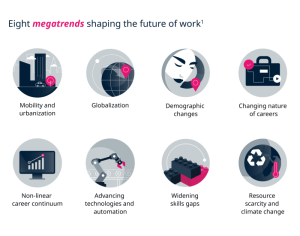
Embark on a journey through the realm of distance education tailored for busy working adults, where opportunities for growth and learning abound at every turn.
Discover how technology, support systems, and career advancement play pivotal roles in shaping the landscape of remote education for the working professional.
Introduction to Distance Education for Working Adults
Distance education, also known as online learning or e-learning, refers to a method of education where students can study remotely without being physically present in a traditional classroom setting. This mode of learning is particularly significant for working adults who may not have the time or flexibility to attend classes on campus due to their professional commitments.Working adults face numerous challenges in accessing traditional education, such as conflicting schedules, commuting long distances to attend classes, and balancing work responsibilities with academic pursuits.
Distance education offers a convenient alternative by allowing individuals to study at their own pace, anytime and anywhere, using online platforms and resources.There are various distance education programs specifically designed for working adults, including online degree courses, professional certification programs, and continuing education modules. These programs often offer flexible schedules, asynchronous learning opportunities, and personalized support to cater to the needs of adult learners juggling multiple commitments.
Examples of Distance Education Programs for Working Adults
- Online MBA programs with weekend residencies for working professionals.
- Virtual classrooms for healthcare professionals to earn continuing education credits.
- Remote learning platforms offering coding bootcamps for IT professionals.
Benefits of Distance Education for Working Adults
Distance education offers numerous benefits for working adults, making it a popular choice for those looking to further their education while balancing other responsibilities.
Flexibility in Scheduling
Distance education provides working adults with the flexibility to create their own study schedule. This means they can attend classes, complete assignments, and study at their own pace, fitting their education around their work and personal commitments.
Balance Between Work and Studies
One of the key advantages of distance education for working adults is the ability to balance work and studies effectively. With the flexibility to study from anywhere, anytime, individuals can continue working full-time while pursuing their educational goals.
Cost-Effectiveness
Distance education programs are often more cost-effective compared to traditional on-campus programs. Working adults can save money on commuting, accommodation, and other expenses associated with attending a physical campus. Additionally, many distance education programs offer financial aid options to help make further education more affordable for working adults.
Technology in Distance Education for Working Adults

Technology plays a crucial role in delivering distance education to working adults, providing flexibility and accessibility to learning opportunities. The use of online platforms, video conferencing, and virtual classrooms has revolutionized the way working adults can pursue further education while balancing their professional responsibilities.
Online Platforms
Online platforms such as learning management systems (LMS) like Moodle or Canvas allow working adults to access course materials, submit assignments, participate in discussions, and interact with instructors and classmates from anywhere with an internet connection. These platforms provide a centralized hub for all course-related activities, making it easier for students to stay organized and engaged in their studies.
Video Conferencing
Video conferencing tools like Zoom or Microsoft Teams enable real-time communication between instructors and students, fostering a sense of connection in a virtual setting. Working adults can attend live lectures, participate in group projects, and engage in discussions as if they were in a traditional classroom setting. This interactive approach enhances the learning experience and encourages active participation among students.
Virtual Classrooms
Virtual classrooms simulate the physical classroom environment by offering features like live chat, virtual whiteboards, and breakout rooms for group activities. These immersive technologies create a collaborative learning environment where working adults can engage with course content, interact with peers, and receive personalized feedback from instructors. Virtual classrooms promote a sense of community and support among students, despite being physically apart.Overall, technology in distance education enhances the learning experience for working adults by providing flexibility, accessibility, and interactive tools to engage in meaningful education while juggling professional commitments.
Support Systems for Working Adult Learners in Distance Education
Distance education programs for working adults often provide a range of support services to ensure their success and retention. These support systems are crucial in helping adult learners balance their professional and academic responsibilities effectively.
Mentorship Programs
Mentorship programs are a common support service offered to working adult learners in distance education. These programs pair experienced professionals or faculty members with students to provide guidance, advice, and support throughout their academic journey. Mentors can offer valuable insights, career advice, and help students navigate the challenges of balancing work and studies.
Counseling Services
Counseling services play a significant role in supporting the mental health and well-being of working adult learners. These services provide a safe space for students to discuss personal or academic concerns, manage stress, and develop coping strategies. Counselors can offer emotional support, guidance on time management, and referrals to additional resources if needed.
Online Resources
In addition to mentorship programs and counseling services, distance education programs often provide access to a variety of online resources to support adult learners. These resources may include virtual libraries, academic databases, discussion forums, and online tutorials. These resources enable students to enhance their learning experience, collaborate with peers, and access additional support outside of traditional classroom settings.
Strategies for Success and Retention
To ensure the success and retention of working adult students in distance education, it is essential to implement strategies tailored to their unique needs. This may include flexible course schedules, personalized academic advising, proactive communication from faculty, and ongoing support from the institution. By addressing the specific challenges faced by working adult learners, institutions can help increase student engagement, motivation, and academic achievement.
Education and Training
Education and training play a crucial role in career advancement for working adults. By acquiring new skills and knowledge through education, individuals can enhance their professional growth and open up opportunities for career development in various industries.
Importance of Education and Training for Career Advancement
- Continuous learning through education and training allows working adults to stay updated with the latest trends and technologies in their respective fields.
- Acquiring new skills can make employees more valuable to their employers, leading to potential promotions or salary increases.
- Education and training provide working adults with the necessary tools and knowledge to excel in their current roles and take on more challenging responsibilities.
Examples of Career Advancement through Continued Education
- For example, a marketing professional who pursues a certification in digital marketing can expand their skill set and take on roles in online marketing, opening up new career opportunities.
- A healthcare worker who completes a specialized training program in a specific medical procedure can advance to a higher position within their organization and increase their earning potential.
- An IT professional who obtains a master’s degree in cybersecurity can become an expert in their field and secure leadership roles in cybersecurity departments of organizations.
Closing Summary

As we wrap up our exploration of distance education for working adults, remember that the path to success is paved with continuous learning and adaptability. Embrace the opportunities that remote education offers and seize the chance to elevate your career to new heights.
Expert Answers
Can I balance work and studies effectively with distance education?
Absolutely! Distance education provides the flexibility needed to juggle work responsibilities while pursuing further education.
Are there support services available for working adult learners in distance education programs?
Yes, many institutions offer mentorship programs, counseling services, and online resources to assist adult learners in their academic journey.
How does distance education benefit career advancement for working adults?
By acquiring new skills and knowledge through education, working adults can enhance their professional growth and open up new opportunities for career development.






